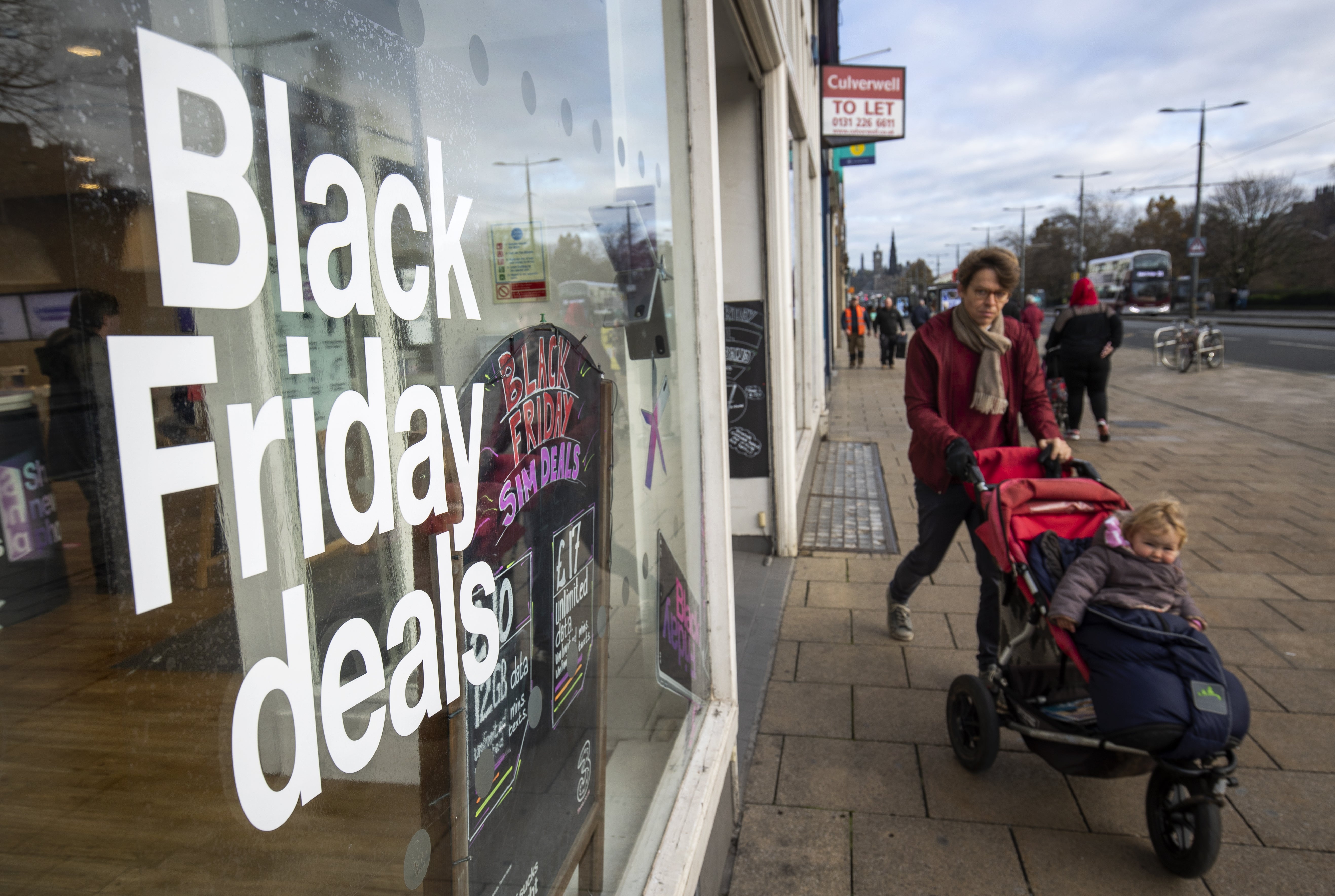Bank warns over Black Friday shopping scams
Last year’s Black Friday season saw a 17% increase in reported shopping scams, Barclays has warned.

Your support helps us to tell the story
From reproductive rights to climate change to Big Tech, The Independent is on the ground when the story is developing. Whether it's investigating the financials of Elon Musk's pro-Trump PAC or producing our latest documentary, 'The A Word', which shines a light on the American women fighting for reproductive rights, we know how important it is to parse out the facts from the messaging.
At such a critical moment in US history, we need reporters on the ground. Your donation allows us to keep sending journalists to speak to both sides of the story.
The Independent is trusted by Americans across the entire political spectrum. And unlike many other quality news outlets, we choose not to lock Americans out of our reporting and analysis with paywalls. We believe quality journalism should be available to everyone, paid for by those who can afford it.
Your support makes all the difference.Last year’s Black Friday season saw a 17% increase in reported shopping scams with victims losing an average of £538, a report has warned.
More than half of Britons (59%) will change their usual behaviour in search of a good deal this festive season, and 38% are planning to shop the Black Friday sales around November 26 this year, the survey for Barclays found.
Almost a fifth of Black Friday shoppers (18%) said they felt pressure last year to buy items as quickly as possible – and 14% said they would shop on unfamiliar websites if they had particularly good prices.
Some 38% of Britons are planning to shop the Black Friday sales, the poll found.
However the poll also revealed that 12% of consumers would give their PIN to someone if they thought it was their bank and 25% would be likely to help if they were fraudulently asked to participate in an “internal bank investigation”.
Some 43% of 31 to 40 year olds would transfer money to a “safe” account if they thought they were being asked to by their bank and 35% of 31 to 40 year olds and 23% of 21 to 30 year olds would be likely to hand over remote access to their laptop or bank account if they believed it was a bank employee asking them.
The bank is urging the public to stay vigilant to impersonation scams during and following the sales season.
Despite 70% of respondents claiming they were aware that scammers could target them through text messages, 11% said they would still pay via a link in a text if they thought the message was from a reputable source.
Barclays head of digital safety, Ross Martin, said: “Whilst the Black Friday and Cyber Monday sales are a great opportunity for consumers to bag a bargain, unfortunately they create the perfect opportunity for fraudsters to target shoppers and it’s important to remember that scammers often do target victims more than once and use details gathered in the first scam to strike again.
“If you receive a call from someone from your bank asking you to do any of these things, hang up and call back either on a trusted number or by dialling 159 – the fraud hotline. Please don’t ignore your concerns – if you’re ever unsure, always take the time to check.”
Mortar Research surveyed 2,039 UK adults in October.